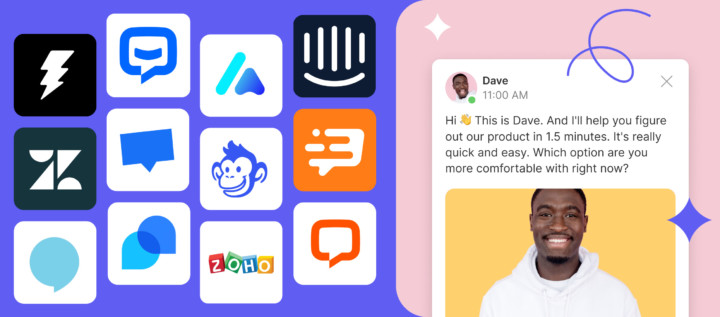10 must-know customer service interview questions you should prepare for

Introduction
In the competitive realm of customer service, the ability to effectively communicate and connect with customers is paramount. As organizations strive to enhance their service quality, candidates seeking customer service roles must be well-prepared to navigate the intricacies of interviews. Understanding the core principles of customer service, mastering key interview questions, and demonstrating strong interpersonal skills are essential components that can set a candidate apart.
Moreover, employing structured response techniques, such as the STAR method, can significantly improve the clarity and impact of their answers. This article delves into the critical elements candidates need to focus on to not only succeed in interviews but also to align their skills with the expectations of prospective employers in the customer service industry.
Understanding the essence of customer Sservice
Support isn’t just a checkbox on a to-do list; it’s the backbone of your business. It’s about meeting client needs and expectations while ensuring they walk away with a smile. This isn’t just a feel-good exercise; it requires sharp communication, genuine empathy, and solid problem-solving skills. When the going gets tough, your ability to navigate those tricky situations can make or break the customer experience. Remember, over 70% of consumers will jump ship after a negative encounter. That’s a stark reminder of why effective communication is non-negotiable.
Now, let’s talk about the folks on the front lines — your contact center agents. A study from Cornell University revealed that 87% of these agents find their jobs stressful. That’s a big deal. It means that when you’re hiring for support roles, you need candidates who not only understand the principles of good support but can also manage their own stress. As they prepare for interviews, they should align their responses with the values of your organization. A solid foundation in customer support principles isn’t just a nice-to-have; it’s essential. It equips candidates to tackle interview questions with confidence and demonstrates their commitment to delivering top-notch service.
This expectation is further backed by the fact that 92% of contact center agents believe quality assurance programs are crucial for maintaining support quality. If you want to keep your support game strong, understanding how QA data ties back to client satisfaction is key. It’s not just about metrics; it’s about ensuring your customers feel valued and supported. In the end, great support isn’t just a service; it’s a strategy for success.

Key interview questions for customer service roles
When it comes to landing a client service role, preparation is key. You need to be ready to tackle the tough questions that will reveal whether you’re the right fit for the job. Here are some critical ones to consider:
Can you describe a time when you handled a challenging client? This isn’t just a question; it’s a chance to showcase your problem-solving skills and resilience. Think about a time when you went the extra mile for a client. For example, if you helped a customer find vegan and gluten-free dining options by researching and providing a tailored list of restaurants, that’s a perfect illustration. It shows you understand the importance of innovative solutions and client satisfaction.
What does outstanding client support mean to you? This question pushes you to reflect on your own experiences as a customer. It’s about articulating what exceptional service looks like from your perspective.
How do you prioritize tasks when juggling multiple client inquiries? Here, you’ll need to demonstrate your time management skills. In the fast-paced world of client support, being organized is non-negotiable.
Employers want to see your excitement about growing with the company. Articulate your career goals realistically; this alignment is crucial.
As one HR expert pointed out, “In my current role, I support clients on every channel — email, phone, chat, and social media messaging.” This highlights the reality of the job.
Anticipate these questions and craft thoughtful responses. It’s your opportunity to show you’re ready for the challenges that come with client support roles. Prepare well, and you’ll not only be ready — you’ll stand out.

Demonstrating interpersonal skills in interviews
In the world of client support, the competition is fierce. When it comes to customer service interviews, candidates need to bring their A-game in interpersonal skills. This isn’t just about chatting; it’s about active listening. You’ve got to tune in to what the customer is saying, and that’s how you show you really get their needs. Eye contact and meaningful conversations? Those are non-negotiables.
Let’s break it down. Candidates can stand out by sharing specific stories that highlight their empathy and teamwork. These anecdotes don’t just showcase their skills — they make a memorable impact that speaks to the core competencies needed in customer service.
Now, here’s the kicker: 90% of decision-makers in companies with mobile workers are putting their money into technology to boost field performance. This means that being able to adapt your interpersonal skills in a tech-driven world is more critical than ever. A case study on active listening shows that mastering this skill isn’t just about hearing words; it’s about grasping the client’s tone and vocabulary. When you do that, you create better experiences and cut down on call handling time.
Finally, let’s not overlook what Zendesk found: 72% of leaders believe that merging teams responsible for client experience will lead to better operational efficiencies. That’s a clear signal. Interpersonal skills aren’t just a nice-to-have; they’re essential for crafting a cohesive client experience. So, when you’re in that customer service interview, remember: showing off those skills isn’t just beneficial; it’s crucial for success in client-facing roles.

Mastering the STAR Method for Behavioral Questions
The STAR method — Situation, Task, Action, Result — is your playbook for tackling customer service interview questions, especially the behavioral ones. Think of it as your roadmap for navigating the tricky waters of interviews. By laying out your experiences with this framework, you can communicate clearly and effectively.
Let’s break it down. When you’re asked about handling a tough customer, start by setting the scene. Describe the frustrated customer — that’s your situation. Next, clarify your task: what did you need to accomplish? Then, dive into the action you took. Maybe you listened closely and offered a solid solution. Finally, wrap it up with the result: what was the outcome? Did the customer leave satisfied? That’s the kind of detail that makes your answer memorable.
This method does more than just organize your thoughts. It highlights your problem-solving skills and how well you connect with people. Remember Peter Drucker’s words: “culture eats strategy for breakfast.” This means that the right culture can make or break your hiring process.
And here’s a kicker: candidates who use structured techniques like the STAR method see a 10% bump in their chances of landing the job. That’s not just a statistic; it’s a testament to the power of a well-crafted response in behavioral assessments. So, if you want to stand out, master the STAR method. It’s a game changer.

The importance of asking questions in your Interview
Candidates, listen up: preparation is key. Don’t just sit there and wait for the interviewer to throw questions at you. You need to come armed with thoughtful inquiries of your own — especially when it comes to customer service roles. Ask things like:
- “What are the biggest challenges your support team is facing right now?”
- “How does your organization measure success in customer service?”
These questions do more than just show you’re interested; they give you a peek into the company’s culture and priorities. Engaging in this dialogue can set you apart and make you memorable to the evaluators.
Now, let’s talk reality. Age bias is real. Research shows that a 50-year-old candidate is up to three times less likely to land an interview than a 28-year-old. So, you’ve got to make your mark through clear and effective communication.
Keep it concise. Remember, 25% of recruiters see long paragraphs as instant dealbreakers. You want your questions to be sharp and to the point. A CareerBuilder survey found that candidates who actively engage with interviewers are much more likely to be remembered positively.
Job searching is stressful — 73% of job seekers agree on that. By asking insightful customer service questions, you can ease some of that tension and create a more dynamic conversation. This is your chance to stand out from the crowd. Don’t let it slip away.

Conclusion
The journey to securing a position in customer service hinges on understanding the nuances of effective communication and interpersonal skills. Candidates must not only grasp the fundamental principles of customer service but also be prepared to articulate their experiences through well-structured responses. Mastery of key interview questions, particularly those that assess problem-solving abilities and resilience, is essential. Demonstrating a solid grasp of what excellent customer service entails can significantly enhance a candidate’s appeal to potential employers.
Moreover, the importance of interpersonal skills cannot be overstated. Active listening, empathy, and the ability to engage in meaningful dialogue are critical components that interviewers seek. Candidates should be ready to share specific anecdotes that highlight their qualifications and adaptability in various customer service scenarios. Utilizing structured response techniques like the STAR method empowers candidates to present their experiences clearly, showcasing their problem-solving capabilities and enhancing their overall impression during interviews.
Finally, the proactive approach of asking insightful questions at the end of an interview can set candidates apart. Inquiring about the challenges faced by the customer service team or how success is measured within the organization not only reflects genuine interest but also fosters a deeper connection with interviewers. By implementing these strategies and focusing on the core elements of customer service, candidates can effectively position themselves as strong contenders in the competitive landscape of customer service roles.








![4 steps as Chief Marketing Officer at a new company [Expert guide]](https://www.dashly.io/blog/wp-content/uploads/2022/10/4-steps-as-Chief-Marketing-Officer-at-a-new-company-Expert-guide-720x317.jpg)